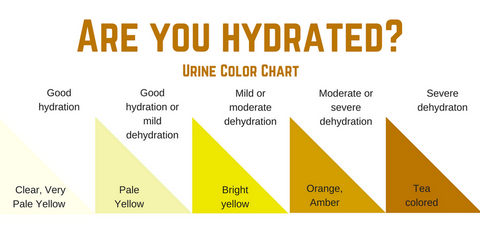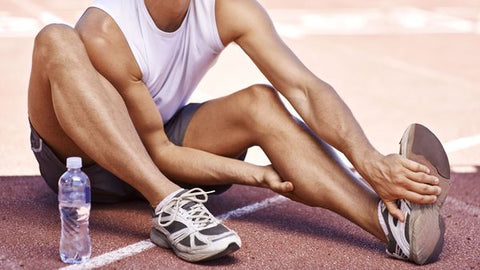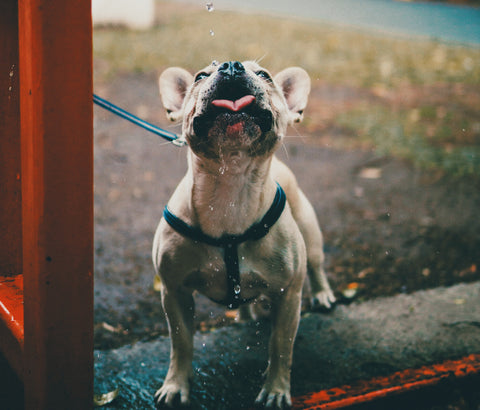6 Signs You Might Be Dehydrated
Surprisingly, it doesn't take much for our bodies to become dehydrated. Losing as little as 1.5% of the water in your body (our bodies are usually about 60% water), puts you on the tipping point of mild dehydration. Dehydration can be brought on by many things and, in addition to feeling thirsty, it can have a huge affect on your body.
Here we highlight at some of the common symptoms to look out for:
Dark Urine
A change in the colour of your urine can be the first sign of dehydration. This usually occurs when your blood pressure falls and your kidneys retain water instead of expelling it from your body. Urine usually darkens deeper than your normal base colour and can even turn brown or deep yellow and dehydration can sometimes cause the urine to develop a strange smell.

Drinks like alcohol or coffee act as diuretics, which means that they make you urinate more often which can lead to mild to moderate dehydration more quickly. Monitoring how often you’re using the bathroom in addition to your urine colour should help manage your hydration.
Fatigue
If you’re feeling a little more sluggish than usual the consider whether you’re drinking enough water. When you are dehydrated your blood pressure drops, your heart rate increases and blood flow to the brain slows - all of which cause the body to operate more slowly and make you feel tired.

This is bad news for athletes with just a 2% dehydration level in your body causing as much as a 10% decrease in athletic performance! The more dehydrated you become, the worse performance gets so it’s especially vital to stay hydrated during exercise.
Overheating

Fluid levels within the body keep our temperatures regulated so we don’t become dehydrated and overheat. When you’re dehydrated you are not retaining enough fluid for the body to cool down so you may notice that you’ve stop sweating or even started to turn pale. This is particularly evident when working out or in hot environments so is essential to increase fluid intake during these scenarios.
Muscle Cramp

Hydration, or more specifically electrolyte balance, is vital for muscle contraction so when sodium and potassium stores are low it can cause painful muscle spasms.. When you become dehydrated, your body goes into defence mode to protect your vital organs - resulting in fluid no longer being directed towards your muscles. Lucky rehydration can quickly ease the pain and prevent further cramping so simply take a break and grab some water.
A Bad Mood

A study published in the Journal of Nutrition tested both mood and concentration in two groups of women. The first group were given adequate fluids to stay properly hydrated, in the the second group they induced mild dehydrated by taking diuretics and exercising. The dehydrated women, who were at a level that was just 1% lower than optimal, reported headaches, loss of focus, and irritability.
You’re Thirsty!

Constantly reaching for the water is usually one of the first signs of dehydration. When you don’t drink enough water, it can affect the concentration of the body's electrolytes (especially sodium and potassium), the minerals that help signal our body’s metabolic processes. When you do not drink enough fluids, your kidneys, the organs responsible for moderating blood and urine volume, cry out for help. The solution: frequent fluid intake, especially during physical activity and when sweating. Drinking sports drinks, which often contain electrolytes, also can also help prevent electrolyte imbalances.
